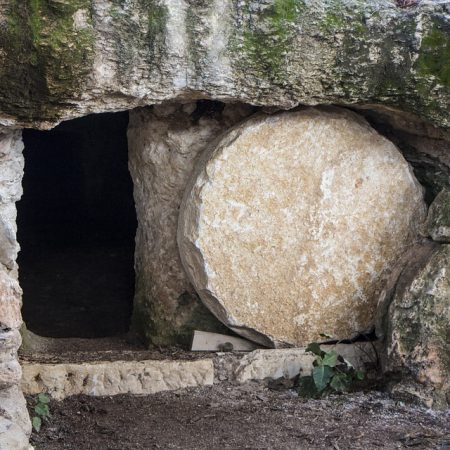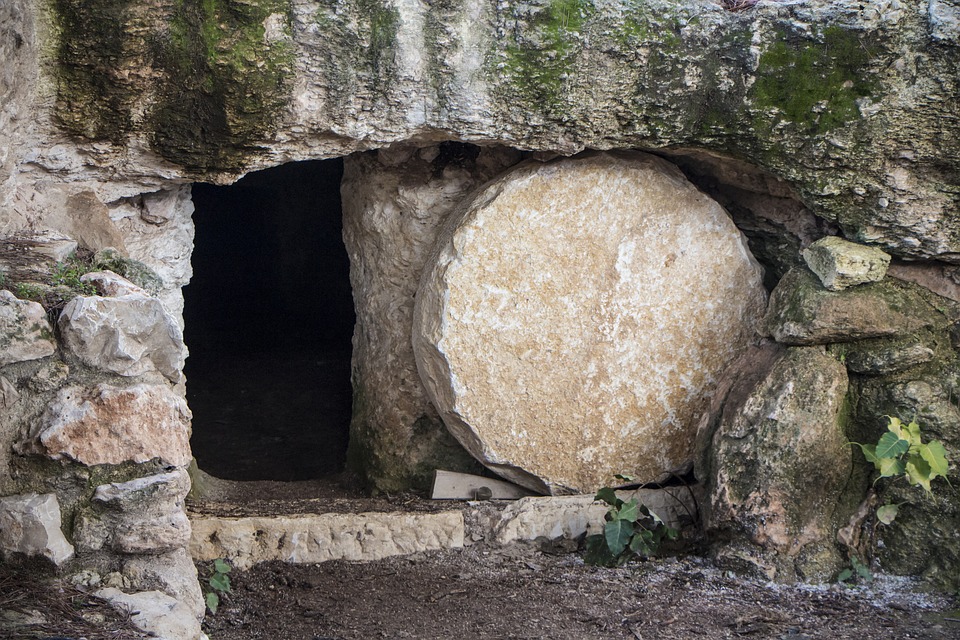
One of the things I was taught in big-time professional writer’s school was that including things like smells in one’s writing makes it more real and “alive” to the reader.
That came back to me recently as I was reading John 11 where Jesus raises Lazarus from the dead.
At verse 39, Martha tells Jesus that Lazarus has been dead for four days and by now he stinks.
As I looked into the verse in various translations of the Bible, I found that there were quite a few different words used to describe the odor. The most common translation was “stinks,” but there were quite a few other options. I found “an odor,” ” bad odor,” “a bad smell,” “a stench,” “decaying,” “terrible,” and “a foul smell.” The most politically correct description was in the Webster English Bible which uses, “his body is offensive” and the most graphic description was in the Aramaic Bible in Plain English which terms the smell “putrid.” Not unexpectedly at all was the KJV which used “stinketh.” (Thanks to Bible Hub here for quickly and easily displaying 28 translations of the same verse at one time.)
But the point here is that Jesus did not just raise a dead man from the grave. He raised a rotten, stinking, putrid corpse back to life.
And He did it in a very public, dramatic manner.
So they took away the stone. Then Jesus looked up and said, “Father, I thank you that you have heard me. I knew that you always hear me, but I said this for the benefit of the people standing here, that they may believe that you sent me.” John 11:41&42 (NIV)
His detractors had heckled him before he said this and I can hear the derision, the mocking, in their voices as they said, “Could not he who opened the eyes of the blind man have kept this man from dying?” (Verse 37)
So, when Jesus raised Lazarus from the dead in front of God and everybody (Yes, I literally mean that.) his detractors ran and told the Pharisees about the whole incident like toddlers tattling to their mommies.
The Pharisees responded by calling a meeting of the Sanhedrin.
Yes, they called a meeting.
The Pharisees were still smarting from that whole incident where they kicked the blind man who had his sight restored out of the synagogue and Jesus told them they were the ones who were blind. (John 9: 30 – 40.)
How could they deny Jesus’ power now? Verse 48 says,
“If we let him go on like this, everyone will believe in him, and then the Romans will come and take away both our temple and our nation.”
And there we have it. They were afraid everyone would believe in him now. It wasn’t about the truth.
It was about their power, their status, their prestige.
It was about their pride.
It’s always about pride. It always comes back to that first sin.
The Pharisees had become accustomed to being not just God’s representatives, but (to some extent) gods themselves.
They called the shots. They decided what God thought and who God was.
In raising Lazarus from the dead, Jesus had virtually signed his own death warrant.
They were fuming mad. They resolved that Jesus and Lazarus himself had to die. (John 12: 10&11)
And then, just days later, Jesus rides into Jerusalem with crowds shouting his praises and laying palm branches and their coats in the road in front of him.
We all remember how the Pharisees told Jesus to silence the crowd and he told them if the crowd was silent “the very stones would cry out” (Luke 19:40) but let’s not forget that there were actually two crowds in this scene.
Crowd number one is coming out of Jerusalem to meet Jesus because they had heard of Lazarus being raised from the dead and crowd number two were the people who saw Lazarus resurrected. (John 12:17&18)
And Lazarus was in that crowd!
So the Pharisees said to one another, “See, this is getting us nowhere. Look how the whole world has gone after him!” (John 12:19)
The whole world.
And, to my way of thinking, that’s the closest they got to being right. They were getting nowhere because God had a plan. God had orchestrated and planned every facet of this.
They would be successful in killing Jesus, and they even had some idea that he had said he would rise from the grave because they took great pains to have guards posted so his body could not be removed from the tomb, but they had no idea that their opposition to Jesus was part of God’s plan for victory.
When Jesus begged the Father, in his very first words from the cross, to forgive them for they did not know what they were doing, that in itself was the beginning of the victory.
The Pharisees knew precisely what they were doing in having Jesus killed, but they did not know that he was indeed the very Son of God himself. They had convinced themselves that he was not. Their hearts had been hardened in an echo of Pharaoh’s hard heart thousands of years before this.
And Jesus forgave the hardness of their hearts from that cross.
But here’s the deal: We love to hate on the Pharisees and look down our noses at them, but not one of us are any better than any of them. The Pharisees arranged and plotted his crucifixion, but it was the crowd before Pilate that shouted, “Take him away! Take him away! Crucify him!” (John 19: 15a) It was the crowd that chose a convicted killer and rebel over Jesus. It was the crowd that shouted, “Let his blood be upon us and our children!” (Matthew 27:25)
There’s plenty of guilt to go around but the curse that crowd spoke over Jesus was actually the cure.
His blood spilled that day was and is our redemption. What we intended for evil, God intended for good because it is that blood that cleanses us and raises our dead, stinking, rotten corpses from the grave. It is the love of God in Jesus Christ that melts our cold, hardened hearts and gives us real, true life in him.
Two thousand years later, Jesus is still who he said he was and he is still changing the world.
He IS the resurrection and the life! He DID step out of the grave on that glorious Sunday morning! Despite all the anger and the hatred and the mocking and the utter injustice and horror of what resides in our very souls, he rose in victory over all the evil that resides in each and every one of us.
HE IS RISEN INDEED!
Today’s Praise
The Spirit of God, who raised Jesus from the dead, lives in you. And just as God raised Christ Jesus from the dead, he will give life to your mortal bodies by this same Spirit living within you. Romans 8:11 (NLT)

